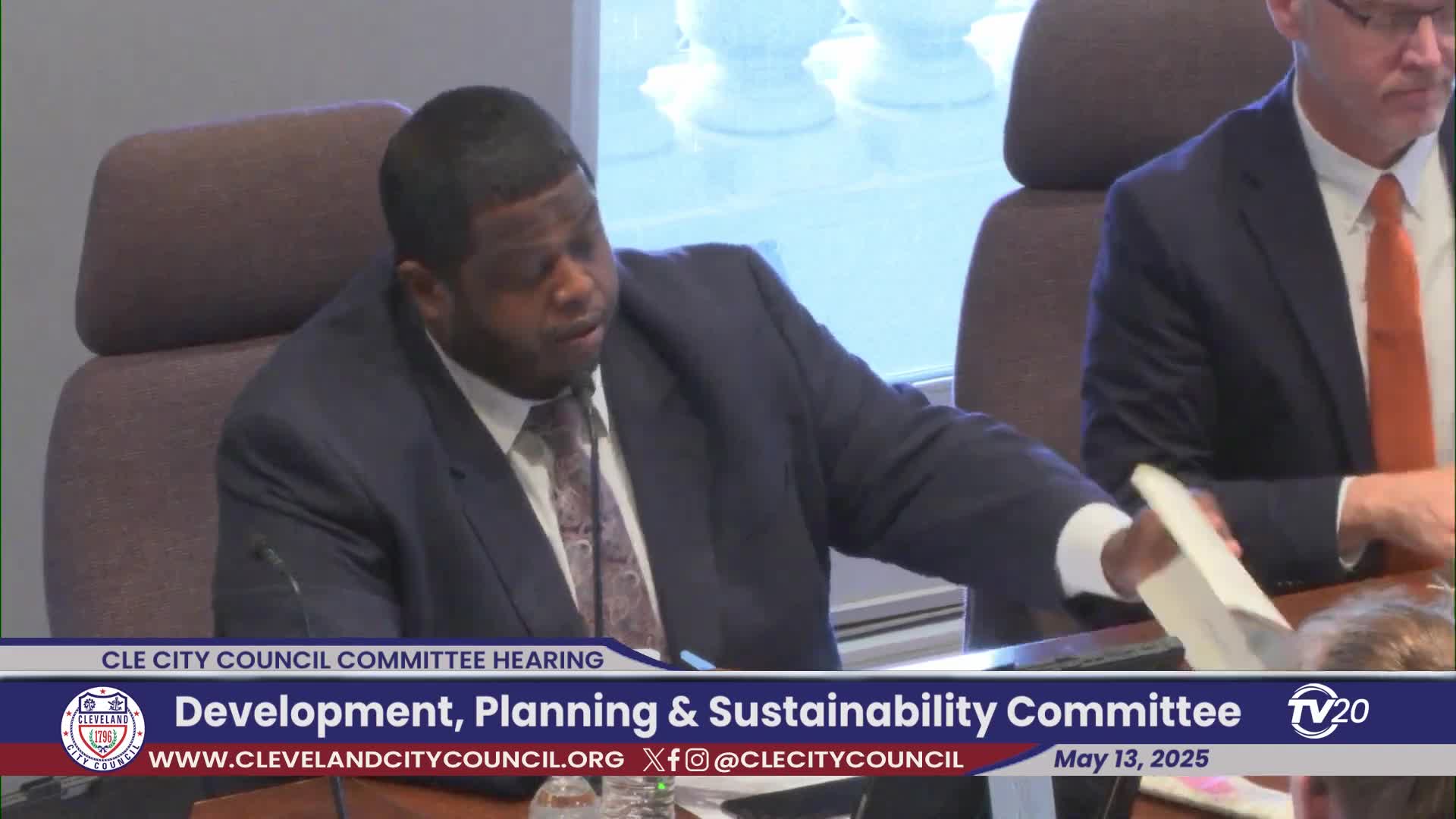Committee hears broad debate on short‑term rental licensing; ordinance held for more work
Get AI-powered insights, summaries, and transcripts
Subscribe
Summary
A comprehensive short‑term rental bill (Ordinance 588‑2024) that would license and regulate short‑term rentals in Cleveland drew hours of testimony and was held for further work. The proposed law would require licenses, impose density limits and raise civil penalties; committee members asked for stronger enforcement details before advancing.
City council’s Department of Public Safety & Service committee spent a lengthy May 13 session examining Ordinance 588‑2024, the city administration’s proposed licensing regime for short‑term rentals, before the committee paused the item for further work.
City attorney Rachel Scalish opened committee discussion with a summary: “Ordinance 588‑2024 will regulate short term rentals as businesses through a licensing process. All short term rentals must be licensed.” The draft would create a new chapter in Cleveland’s codified ordinances, require local contact information for operators, and make licensed short‑term rentals subject to the city’s transient occupancy (bed) tax.
Under the draft presented to the committee, short‑term rentals could operate in one‑family districts subject to a density limitation of “at least 1 or no more than 15% of the total residential units on the block or in a multi‑unit building, whichever is greater.” The legislation would require a $150 application fee and a $150 annual renewal; operators must carry liability insurance of at least $300,000 and produce a certificate of occupancy. The ordinance would bar advertising or taking reservations without a license and requires that licenses be displayed at the main entrance.
The bill also significantly raises civil penalties in multiple categories. Scalish described them in committee: failure to obtain a license could be fined “not more than the lesser of $5,000 or three times the revenue generated by the short term rental for each violation.” Advertising without a license or completing a reservation without a license would carry $1,000 fines per violation; repeated operating violations would escalate to $3,000 for subsequent offenses.
City staff and several council members framed the legislation as a response to an enforcement problem under the existing limited‑lodging rules, which they described as largely complaint‑driven and unenforceable. Commissioner Stevens (assessments and licenses) and Council counsel said licensing would give the city a roster of operators and a concrete tool to revoke or suspend licenses for nuisance or safety violations.
Councilman Kevin McCormack, the ordinance sponsor, told the committee the licensing model creates accountability: “If you are operating illegally in a nuisance manner, cars parked all over your driveway, parties at night, or running amok, we're coming for you.”
Public testimony included concerns from residents about noise, parking and safety. Michael Howard said two short‑term rentals operate adjacent to his house and described repeated disturbances: “I don't have a quiet enjoyment of my home.” Reverend Pamela Pinckney asked officials to explain the term “institutional research” used elsewhere in the agenda and expressed worry about how fines would affect lower‑income residents.
Committee members pressed staff on enforcement details, nighttime and after‑hours response, the role of booking platforms and whether certain neighborhoods should be exempt. Some members suggested adding a hard cap on the total overnight occupants per rental (for example, 10–12 people), while staff and council counsel raised legal concerns about zoning‑based prohibitions and noted current case law limits how a city can use zoning to bar short‑term rentals in particular residential districts.
After extensive discussion about density, enforcement and reporting, the committee chair announced the item would be held so staff could return with additional enforcement tools, updated case law and draft implementation procedures. No vote was taken on the ordinance at the hearing.
